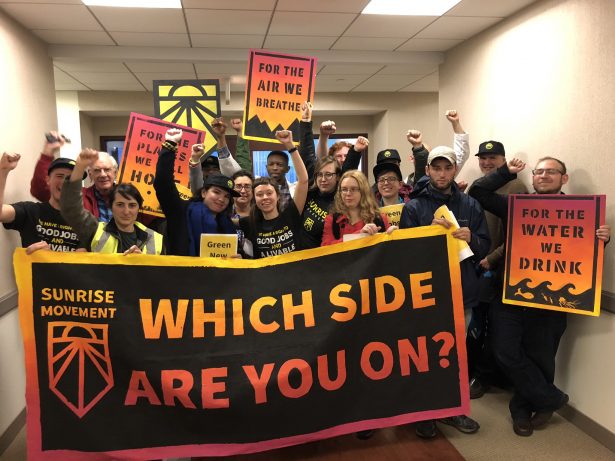
This is an excerpt of “Resistance Guide” published in the recent “Bye-Bye 45: A Guide to Bringing Him Down.” Read more about the action guide here.
For social movements, protest is the most effective means of polarizing an issue. Research shows that perceptions of protest as violent or destructive of property tend to discourage participation and make a movement less effective. Confrontation, however, is not the same as violence. Confrontational tactics can draw people to a cause, even when the protesters are criticized as too abrasive.
You wouldn’t always know it. The message that protest doesn’t work is deeply ingrained in our political and popular culture. Anyone who tries to join a demonstration will hear the same refrain: No one is listening to you. No one cares. You’re just preaching to the choir. You’re too disruptive. You’re too angry. You’re making a lot of noise and accomplishing nothing.
This message is wrong. Dangerously wrong. In recent decades, scholars have pushed back against the monolithic myth with numerous accounts of how protests changed public opinion, shaped policy and altered the course of history. There’s even quantitative evidence: A study by Daniel Gillion at the University of Pennsylvania analyzed civil rights legislation from the 1960s through the 1990s and found that every 10 protests in a representative’s district made that representative 1 percent more likely to vote in favor of civil rights issues — a minor but nonetheless demonstrable effect on legislative progress.
Our society is adept at shutting out the voices of ordinary people. Corporations spend millions on advertising. Celebrities dominate airtime. Wealthy constituents have the attention of elected officials. In a democracy, protest is the most effective way to seize the microphone in the absence of either money or fame.
Protests capture the attention of the media and the broader public. They shine a spotlight on issues that those in power would otherwise ignore. And after heightening awareness, protests force people to take a position. Protest asks, “Which side are you on?”
Even though confrontational tactics may cause discomfort, they force people to make a choice, to view an issue in terms of right and wrong.
Martin Luther King Jr. presented a powerful explanation of this process in his “Letter from Birmingham Jail.” Responding to criticism of disruptive protests that had culminated in violence, King wrote, “We who engage in nonviolent direct action are not the creators of tension. We merely bring to the surface the hidden tension that is already alive. We bring it out into the open, where it can be seen and dealt with.”
This is the response to offer those who say that protest is too disruptive. Protest polarizes, and successful polarization moves people from neutral to taking a stand.
Not everyone has to like us
We don’t need to change the minds of angry Trump supporters to win. We don’t need everyone to like our movement or approve of our tactics. A large majority of the public opposed the Tea Party, yet they captured the agenda of the Republican Party. The civil rights movement achieved huge legislative victories because the public came to support the need for concerted action on civil rights even as they disapproved of the movement’s tactics.
Research shows that even tactics the public dislikes can increase support for an issue. Even a movement that is seen as unpopular can continue winning people to its cause. Public opinion never gave wide support to the Occupy movement — approval of the Occupy encampments often polled lower than it did for the Tea Party. Yet through Occupy, public concern over inequality grew.
Of course, this does not mean that we should be purposefully alienating. There is a fine line between protests to move people towards our side and alienating potential supporters. Protests that are disruptive or dramatize an issue should still appeal to common sense values.

The challenge I see is how to polarize an issue without polarizing people in the process. Does polarization as a tactic add to tensions between people who are already tense? Does it back people into a corner of their self-righteousness? How can they emerge without someone reaching out for them?